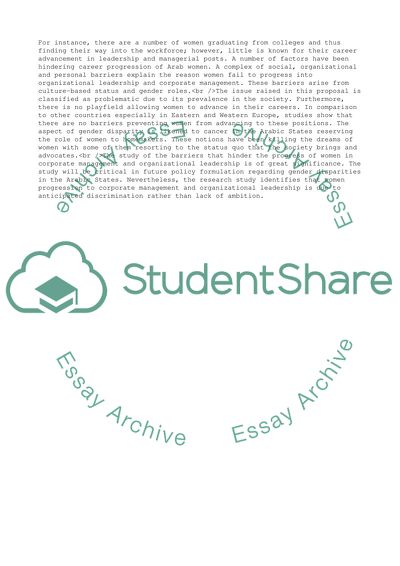Cite this document
(“The Progress Of Arab Women In Leadership Research Proposal”, n.d.)
The Progress Of Arab Women In Leadership Research Proposal. Retrieved from https://studentshare.org/management/1679171-the-progress-of-arab-women-in-leadership
The Progress Of Arab Women In Leadership Research Proposal. Retrieved from https://studentshare.org/management/1679171-the-progress-of-arab-women-in-leadership
(The Progress Of Arab Women In Leadership Research Proposal)
The Progress Of Arab Women In Leadership Research Proposal. https://studentshare.org/management/1679171-the-progress-of-arab-women-in-leadership.
The Progress Of Arab Women In Leadership Research Proposal. https://studentshare.org/management/1679171-the-progress-of-arab-women-in-leadership.
“The Progress Of Arab Women In Leadership Research Proposal”, n.d. https://studentshare.org/management/1679171-the-progress-of-arab-women-in-leadership.


